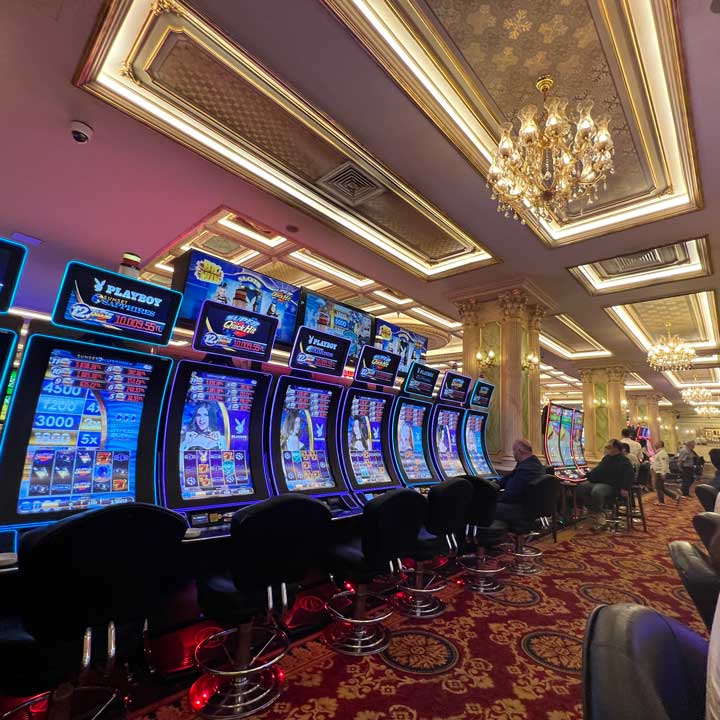Casino entertainment have long been a engaging source of amusement, drawing countless of players from diverse cultures around the globe. From the opulent casinos of the Strip to the thriving gambling halls of Macau, these games serve as a link that connects people across different backgrounds. The allure of luck, tactics, and gambling entices not only those hoping to strike it rich but also those seeking a shared experience.
The cultural impact of casino games extends well beyond the gaming floor. They often embody the values and beliefs of the societies in which they thrive. Games such as poker, blackjack, and the wheel game have integrated into the mosaic of mainstream culture, influencing multiple fields from films to clothing. As we explore this captivating intersection of luck and society, we can comprehend better how these games shape and are shaped by the environment surrounding us.

Historical Development of Gaming Games
The roots of gambling activities can be traced back to historical civilizations, where gambling in multiple forms was widely performed. In the East, around two thousand three hundred years before Christ, a form of luck game known as Keno was popular, while in historic the Roman Empire, soldiers would often bet on the results of their games. The idea of using randomness for fun and profit developed over the centuries, leading to the establishment of more structured games. By the end of the Middle Ages, gambling houses began to appear in the continent, especially in Italy, which introduced early incarnations of popular games still enjoyed today.
As gambling gained recognition in European regions, the 17th and 18th centuries saw the appearance of gaming houses as exclusive venues for gaming. The initial official gambling house, the Ridotto, was founded in the Venetian city in the year 1638, providing activities like the game of Baccarat and the game Faro. This time marked a crucial turning point, as casinos started to welcome not just the wealthy but also the expanding middle class. The refinement of activities increased, leading to the development of new guidelines and versions that improved the experience of players.
In the 19th century, the industrial age and changes in social standards further altered the environment of casino activities. The introduction of the game of roulette and contemporary slot machines attracted a larger clientele, and gaming houses became seen as legitimate fun. This time witnessed the globalization of gaming, as casinos expanded from the continent to the Western Hemisphere, culminating in the development of the legendary Las Vegas Strip in the twentieth century. The development of gaming activities has persisted into the present day, incorporating technology and digital services, allowing them available to a worldwide population.
### Cultural Relevance within Diverse Cultures
Gambling games have significant social value in many communities throughout the planet. In Las Vegas, the very fabric of the city is woven around casinos, where gambling is not just a hobby but a fundamental aspect of social engagement and community interaction. The dazzling lights and lively atmosphere attract a vast audience, showcasing how casino games can shape local economies and local cultures. This environment transforms the notion of recreation into an engaging event that influences apparel, sound, and even movies.
On the other hand, some communities approach wagering with greater care, considering it through the lens of ethical considerations and heritage. For instance, in various Oriental cultures, games like Mahjong and Pai Gow Gambling are full of history and possess significant social meanings. U888 These games are often played during meetings and occasions, fostering community bonds and strengthening familial ties. The act of engaging in these games goes past mere leisure, reflecting ethics such as respect for elders and the significance of shared enjoyment.
At the same time, in continental countries such as Monaco and Italy, gambling activities serve as symbols of opulence and sophistication. The elegant atmosphere of these venues attracts both travelers and residents, maintaining a sense of prestige and rarity. The art of poker and the tactical components of games like the game of baccarat are esteemed, molding interpersonal interactions and creating an allure that captivates a diverse audience. This highlights how gambling can concurrently echo and shape cultural attitudes towards hazard, reward, and relationship building.
Financial Influence and Travel Industry
Casino games play a significant role in the economic landscape of many areas, particularly those that rely heavily on tourism. The revenue generated from gambling establishments fuels local economies, creating employment opportunities not only within the casinos themselves but also in related sectors such as hospitality, restaurant services, and recreation. This influx of tourists, drawn by the allure of games and the overall gaming environment, stimulates spending across multiple local enterprises, contributing to the economic health of the area.
The existence of casinos often leads to the development of infrastructure, including hotels, transportation systems, and leisure amenities. These developments are essential in enhancing the overall tourist experience, making locations more attractive to tourists. Additionally, many casinos contribute in local communities through support of activities and philanthropic activities, further integrating themselves into the social fabric of the region. Such contribution not only supports economic growth but also cultivates a positive reputation of the casino industry.
Furthermore, the worldwide appeal of casino games drives tourism competition, with locations vying to attract gamblers from across the globe. Iconic destinations like Las Vegas and Macau have become identifiable with gambling culture, drawing millions each year. This advantage encourages innovation and variety within the gambling sector, influencing trends in leisure and hospitality that resonate beyond their borders. The ripple effects of this visitor influx extend wide, impacting local financial health and cultural exchanges on a global scale.